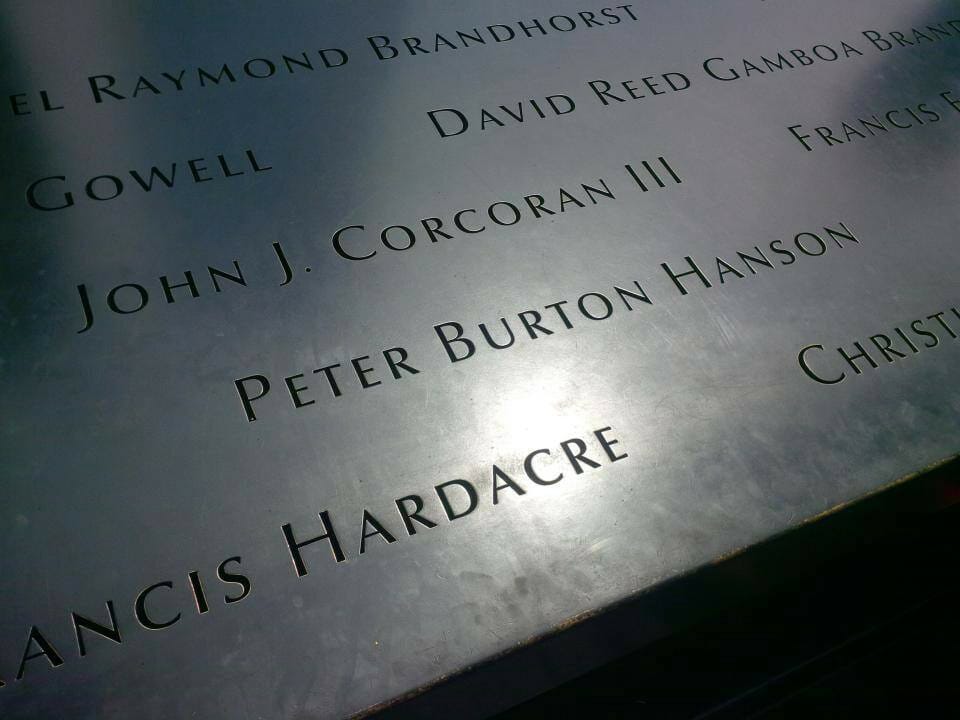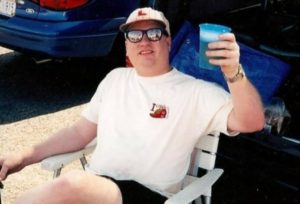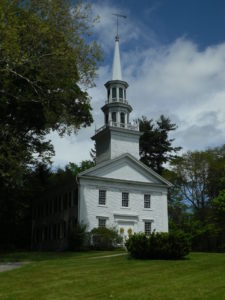
National September 11 Memorial, New York City.
Photo: Curtis Ramsey-Lucas
The wounds that cut too deep—Remembering 9/11

Curtis Ramsey-Lucas
September 10, 2021
“Arrival,” is a 2016 movie about a linguist, Dr. Louise Banks, played by Amy Adams, who works with the military to communicate with alien lifeforms after twelve mysterious spacecraft appear around the world. Early in the film, as those events are unfolding, Dr. Banks says, “There are days that define your story beyond your life.” Sept. 11 was a day like that for me. Apart from the trauma of the day itself and having been close to one of the potential targets, the Capitol, as the attacks unfolded, I knew someone who was killed that day. For a relatively brief but significant time our lives were knit together. The awful events of that day cannot change that or the ways we remain connected beyond the bounds of time and space.
May 2, I was scrolling through Facebook memories when I came across a photo of Peter Hanson, a friend from high school. Posted by his classmate, Chris Clark, I had shared it ten years earlier.

Photo: Chris Clark
In the photograph, Pete is seated in a folding chair, smiling behind sunglasses, beer raised, wearing a white tee-shirt and a 1930’s style Boston Red Sox cap. Above the photo, Chris had written “They got him, Pete,” words that echoed President Obama’s May 1, 2011 announcement that bin Laden had been killed. A flood of memories returned.
9/11, I was in my office on Capitol Hill. I read about a plane hitting the twin towers, and the speculation it was an accident, on America Online. I called my wife and we talked about it briefly. She called back later and told me to come home. As I hung up the phone, a man burst into the office to announce that my building, across the street from the Capitol and the Supreme Court, was being evacuated. I left the building, saw smoke on the horizon from the attack on the Pentagon, crossed Constitution Avenue in a crowd that included then Sen. Orrin Hatch, heard the roar of fighter jets above Washington, and walked to Union Station and a crowded, somber Metro ride home.
That afternoon I was in my home office when I got the call that Pete had been on United Flight 175, the second plane flown into the twin towers. He was travelling to California with his wife, Sue, and their 2-year-old daughter, Christine. Pete was on a business trip but had planned a few days’ vacation after to visit family and go to Disneyland. I shared the grim news with my wife and collapsed in my chair, watching the late afternoon sun spill in through the windows casting shadows across the room.
I learned Pete had made two phone calls to his father from the plane. In the first he told his father that his flight had been hijacked and he had just witnessed the murder of a flight attendant. Moments later, on a second call, he said goodbye. “Don’t worry about us,” he said, “it’s going to be quick.”
“There are days that define your story beyond your life.” Sept. 11 was a day like that for me.
I drove to Connecticut for the memorial service days after the attack. Flags and signs hung from the overpasses on Interstate 95. Smoke, visible from the Jersey Turnpike, hung over the skyline of lower Manhattan. There was an eerie absence of traffic on the George Washington Bridge and the Cross Bronx Expressway.

Easton Congregational Church
Easton Congregational Church was filled to capacity, the windows open wide so that the crowd on the lawn could hear, a small bus from Christine’s day care parked just outside the door. At the end of the service we stood, held hands, and, through tears, sang the Barney theme song which had been a favorite of Christine’s. Still in shock, only beginning to grieve, we celebrated their lives even as we mourned their untimely deaths.
Ten years later, I was again home when I learned bin Laden had been killed. I watched President Obama’s announcement and the crowds that spilled into the streets of Washington. I did not join in the celebration nor find fault with those who did. I took no joy in the death of bin Laden but felt no sorrow either. Whatever satisfaction I may have felt that we had gotten bin Laden was tempered by the knowledge that he had gotten Pete, Sue, Christine, and so many others, first.
Ten years later still, after seeing that picture of Pete again, I wrote this song. Maybe one day I will make a proper recording of it. For now, it’s just me, a guitar, a couple of chords, and a song about a long-lost friend too soon gone.
Curtis Ramsey-Lucas is editor of The Christian Citizen.
The views expressed are those of the author and not necessarily those of American Baptist Home Mission Societies.


